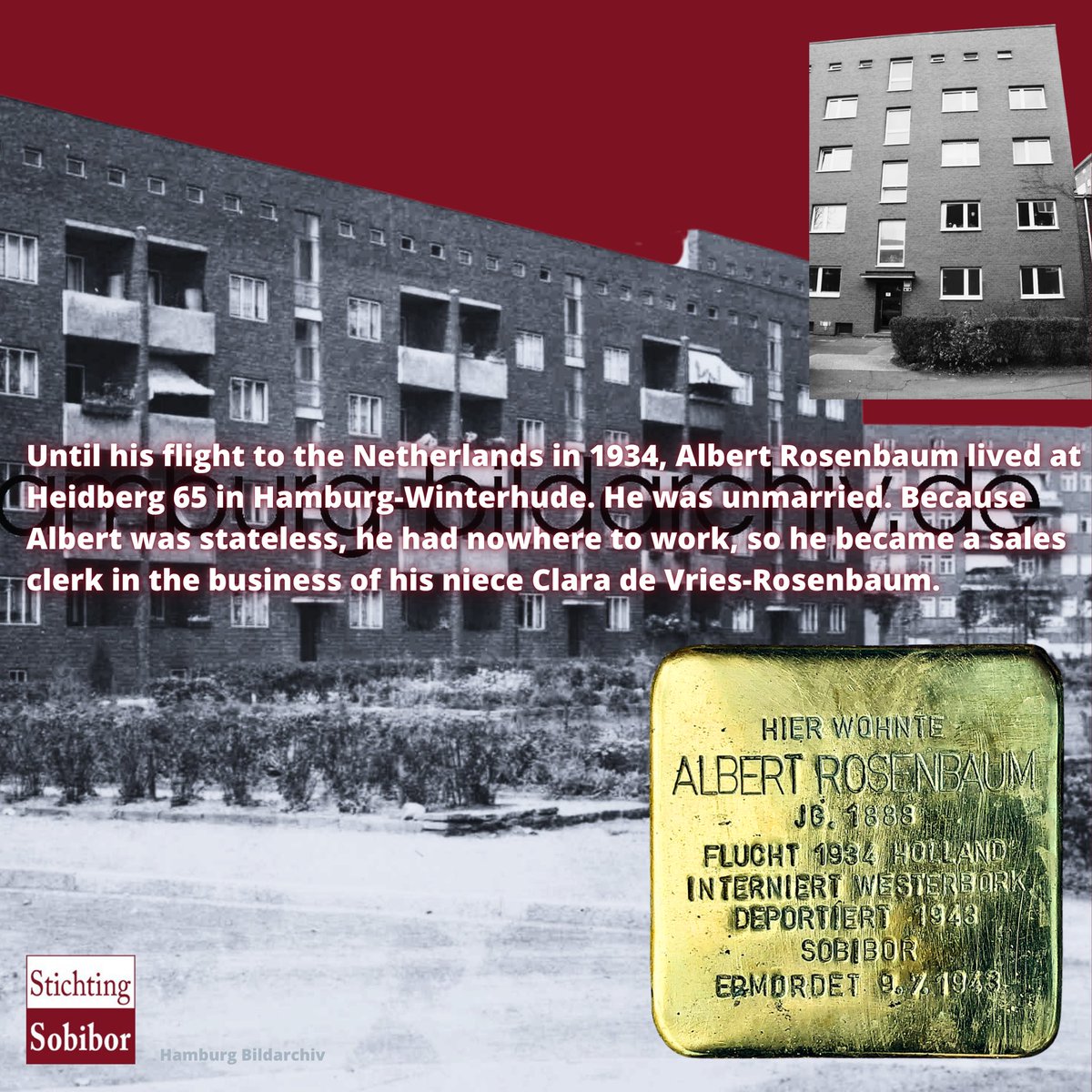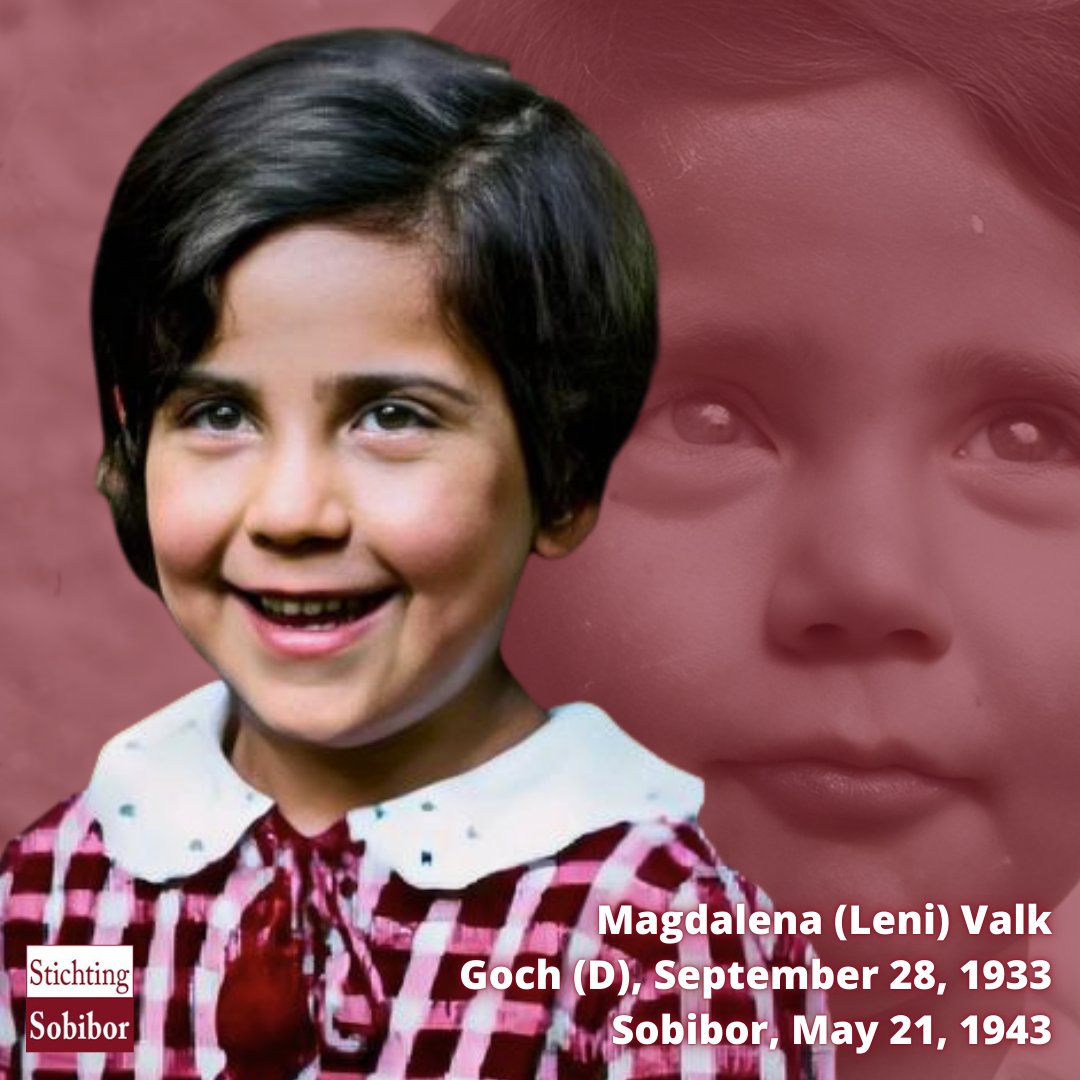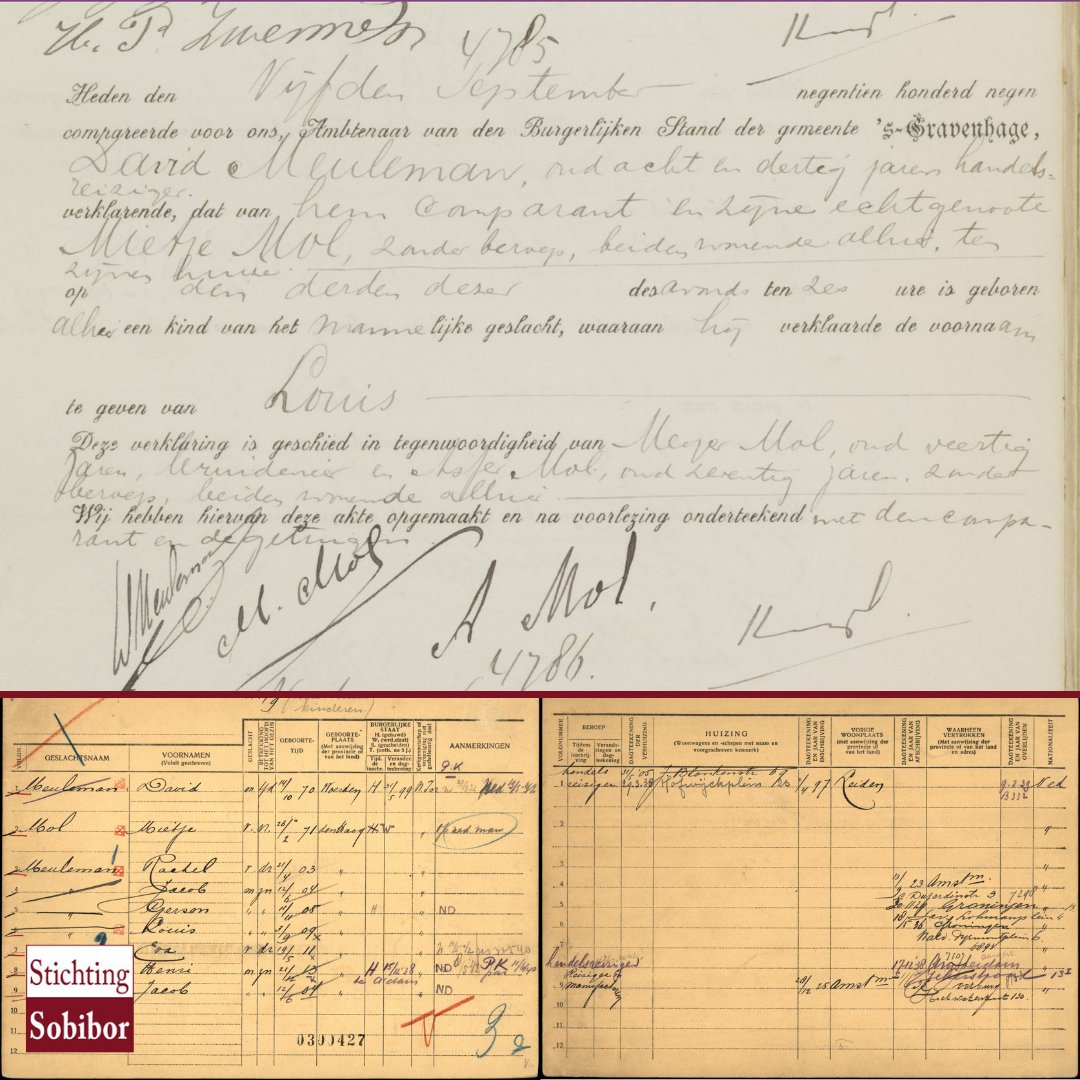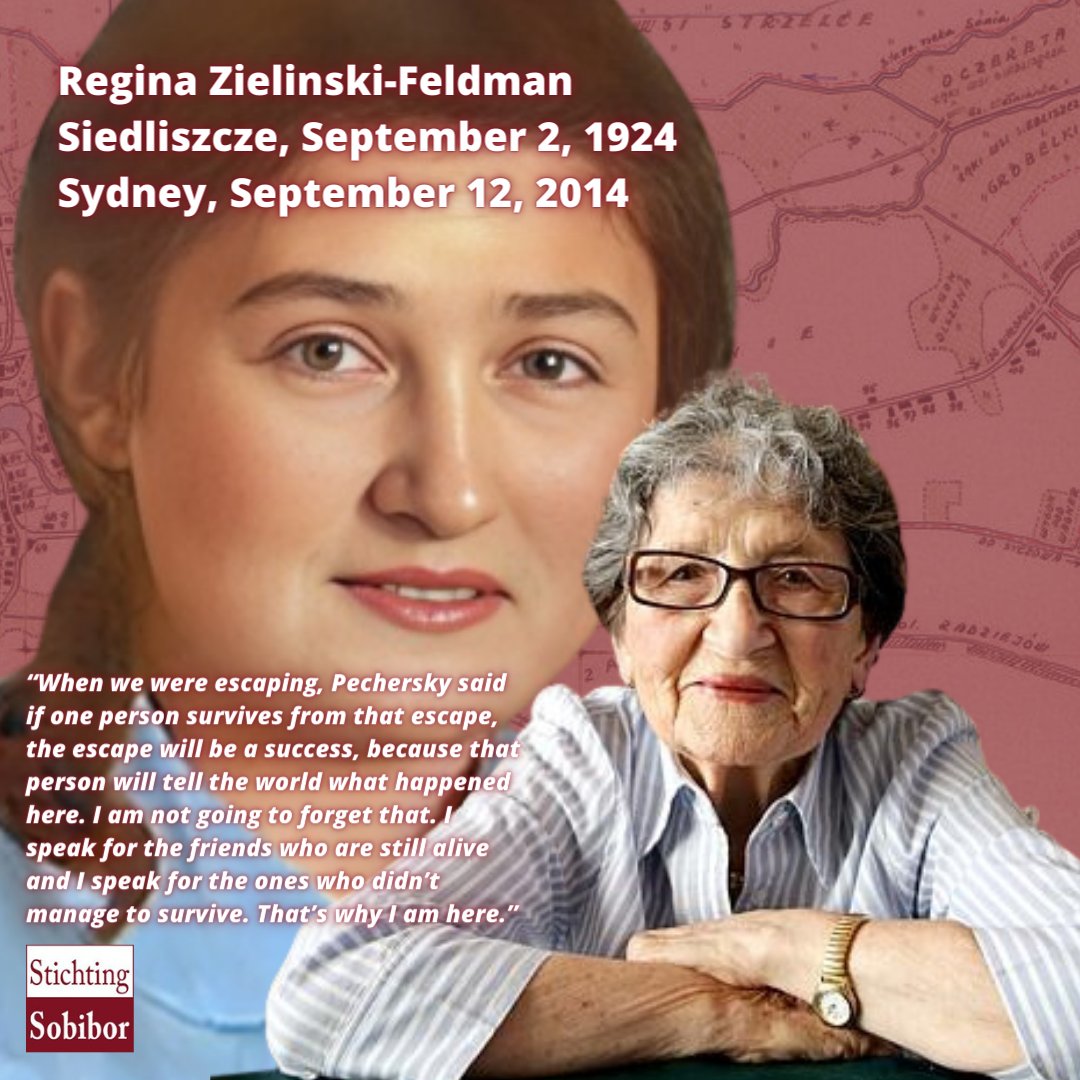11.05.1943 | Jozef Wins survived the 11th Transport. 34313 deportees went from @kampwesterbork to #Sobibor, 18 survived and 1 of them is Jozef Wins.
He spent almost two years together with Jules Schelvis and Leo de Vries, and were referred to as "die drei Hollӓnder. Thread 👇🏼/1
He spent almost two years together with Jules Schelvis and Leo de Vries, and were referred to as "die drei Hollӓnder. Thread 👇🏼/1

Jozef Wins (1915) was born in Amsterdam as a son of Isaäc Wins (1884-1942) and Bloeme Leeda (1892-1942). He had 2 brothers, Samuel (1913-1919) and Salomon (1930-1943), and 2 sisters, Rachel (1918) and Sophia (1927-1942). Rachel and Jozef survived the war. /2 

Jozef went into hiding during the war. On March 12, 1943, he was betrayed. He was first locked up in the prison on Amstelveenseweg and later transported to Westerbork as a "criminal" case. /3 



As a criminal case (name for Jews who had gone into hiding) he remained in Westerbork for only a short time. Three days after his arrival, he was put on a transport to the east on May 11, 1943. /4 

On December 22, 1947, Jozef Wins and Jules Schelvis testified together at the Netherlands Institute for War Documentation about the 11th transport of May 11, 1943. /5 



Jozef is 1 the 80 men who is picked out of his transport to be transferred to the nearby Dorohucza labor camp. He sees that those left behind have to remove shoes and socks, and elderly and sick people are thrown onto lorry wagons. Constantly these people are beaten with whips./6 



Dorohucza was about 5 km NE of Trawniki, on the river Wieprz. It consisted of 3 large barracks, placed in a 'U' around the Appellplatz, a barrack for the SS and one for the Ukrainian guards and a watch tower. The peat fields were on the other side of the river. /7 

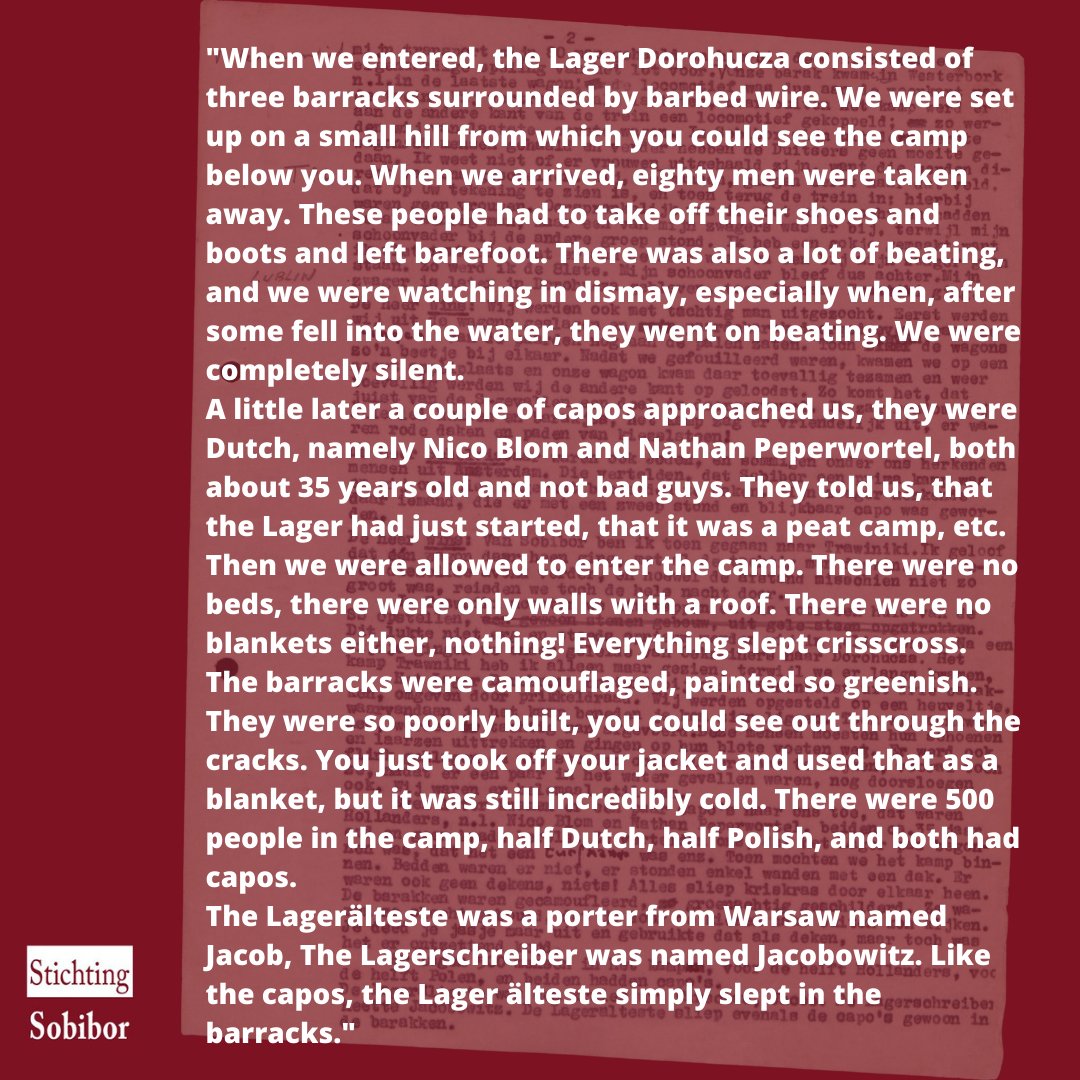

Via Lublin-Alter Flughafen, Radom ghetto are the 3 in November 1943 transferred to the Szkolna camp. Via Tomaszow-Mazowiezki and Kochendorf Joezf goes on a 12-day death march to Dachau. From April 8, 1945, Jozef Wins was imprisoned in Dachau. His camp number was 150229. /8 

In 1947 he married in Amsterdam Holocaust survivor Lea Viool. He had a happy and long life.
Jozef Wins died on October 11, 2011 in Naarden at the age of 96. /9

Jozef Wins died on October 11, 2011 in Naarden at the age of 96. /9


• • •
Missing some Tweet in this thread? You can try to
force a refresh




